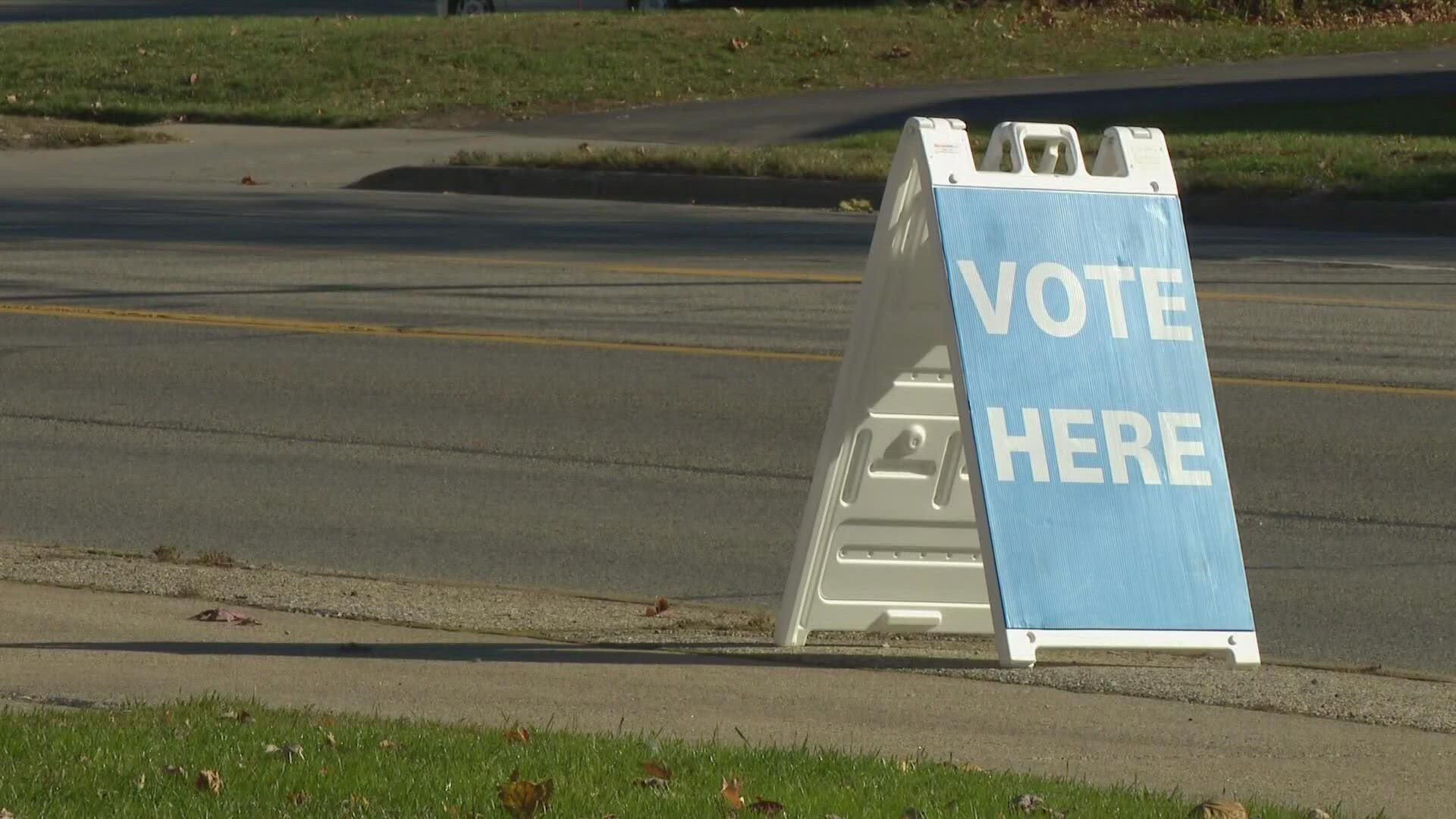KENT COUNTY, Mich. — With the midterm election now just under two weeks away, election officials and experts in Michigan held a panel Wednesday, to give the public a better idea of how election processes and practices work, and lay out the procedural details.
People closely involved in the process, spoke and answered questions to clarify information to, "prevent the confusion that happened in 2020."
The press briefing was hosted by Secure Democracy Foundation, All Voting is Local and Protect Democracy, three organizations who are focused on secure and fair elections in Michigan and across the country. The following are the four who participated:
- Chris Thomas, former Michigan Elections Director, fellow at the Bipartisan Policy Center, senior advisor to Detroit City Clerk
- Justin Roebuck, Ottawa County Clerk
- Tony Daunt, Chair of the State Board of Canvassers
- Mary Ellen Gurewitz, Vice Chair of the State Board of Canvassers
"The process of getting election results and certifying election results happens in a very bi-partisan, and very transparent way under Michigan law," said Roebuck. "We want to engage with voters, and we want to kind of de-bunk information as well and get the factual information out to people in a consistent way."
"It's unfortunate that it's become a rather bipartisan affair, where if you disagree with the results, you cast doubt on those results," added Daunt, "and it was taken to an entirely new, malignant level, this last time in 2020, but I think that's a result of each side, kind of trying to one up each other, and hopefully this type of program and discussion can dispel some of those concerns for 2022."
According to the panel, and specifically Chris Thomas, attention to the election process is greater than ever. Everything from the verification of ballots, ballot counting, canvassing, and even certification is more focused on by the public.
"In modern times, this is a new phenomenon around the country," Thomas said.
THE PROCESS
Once polls close at 8:00 p.m. on November 8th, each precinct's board of inspectors will count the votes from their specific precinct. Then they will prepare statements of returns; one for the county board of canvassers, and one for the county clerk.
"Really immediately following election day, that's where that first certification process begins to take place, at the county level," said Justin Roebuck.
He explains this as a sort of "checks-and-balances" system to make sure the data is accurate and verified.
After that, each county board of canvassers must meet to complete the county canvass, which is how election results are checked for accuracy. Local boards must complete their canvass and certify their election results by November 22.
"It's an extensive process," said Roebuck, "and they have 14 calendar days under state statute to complete it."
According to Chris Thomas, this year's August primary was certified by 83 county boards of canvassers, and by the state board of canvassers.
"And therefore, people should have faith that these results have gone through numerous steps of vetting," added Tony Daunt, "and that people with both parties have had their eyes on the results."
Once the tabulated results are sent in by the county boards of canvassers, the state board of canvassers conducts the statewide canvass, which is required to start on November 28th and be finished by December 18th. Only then, is when the election results are certified and official.
The panel explained that canvassing is an extremely important part of the process, because it helps ensure the accuracy of the vote count.
That being said, Roebuck added that, "elections are a human process, so errors do occur, but we do have mechanisms in place to ensure that we correct those errors prior to certification."
One the panel also noted, is that neither canvassers nor other election officials have the authority to change or alter the vote count from the election.
"I think it's important to say that we have no investigatory power," Mary Ellen Gerwitz, the Vice Chair of the Board of State Canvassers. "We don't have any authority to look behind the numbers, we are simply putting it together."
"If anyone suspects or makes any accusations of election fraud, that's not something that the canvassers consider," she added, "instead, that is something to be taken to law enforcement authorities."
"The good news is, election deniers will never be successful in thwarting the will of the people," said Chris Thomas.
For more information on where and how to vote, or any other questions you might have on the midterm election on November 8th, 13 On Your Side has put together a comprehensive guide, which you can find by clicking here.
►Make it easy to keep up to date with more stories like this. Download the 13 ON YOUR SIDE app now.
Have a news tip? Email news@13onyourside.com, visit our Facebook page or Twitter. Subscribe to our YouTube channel.

